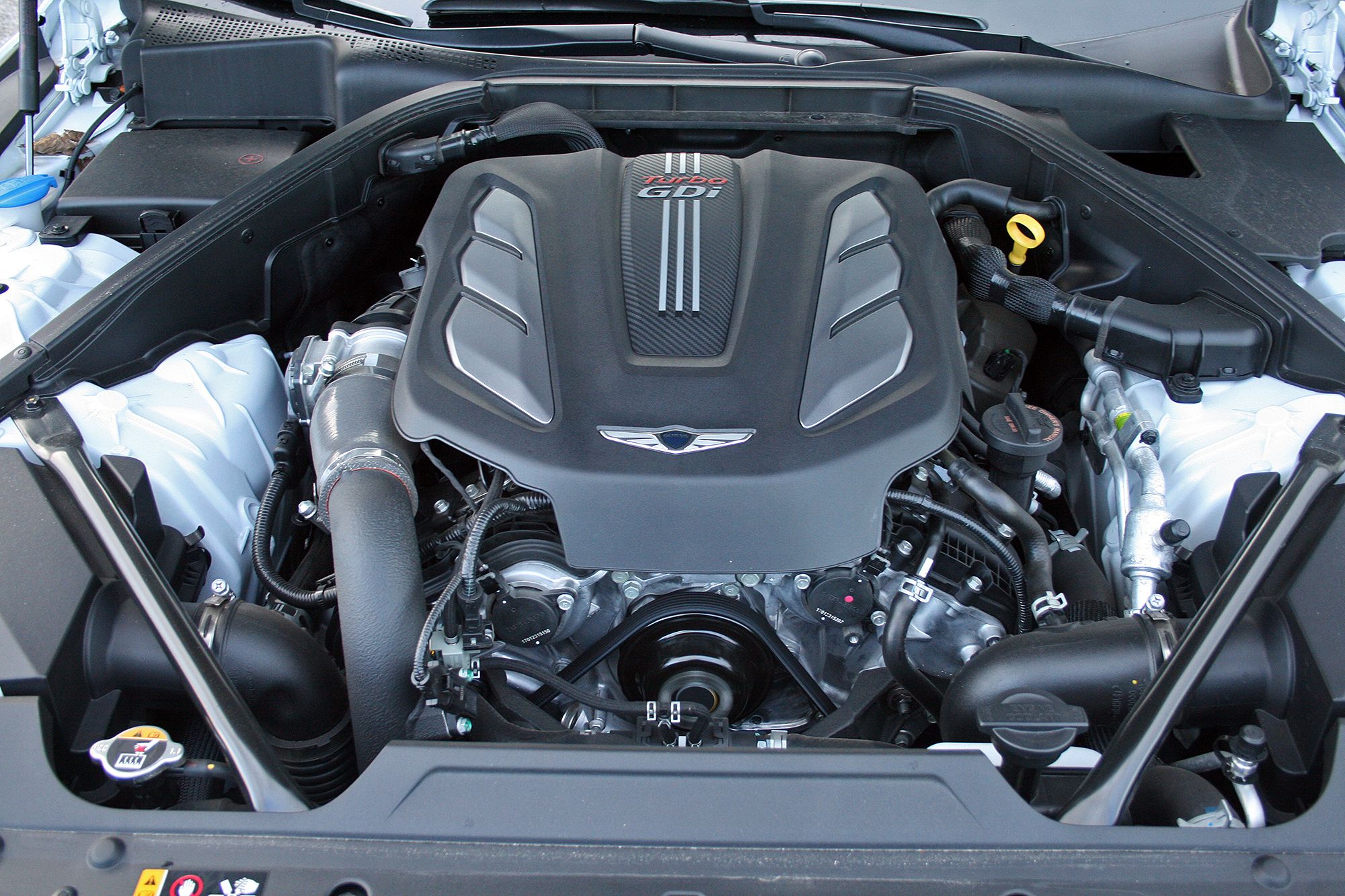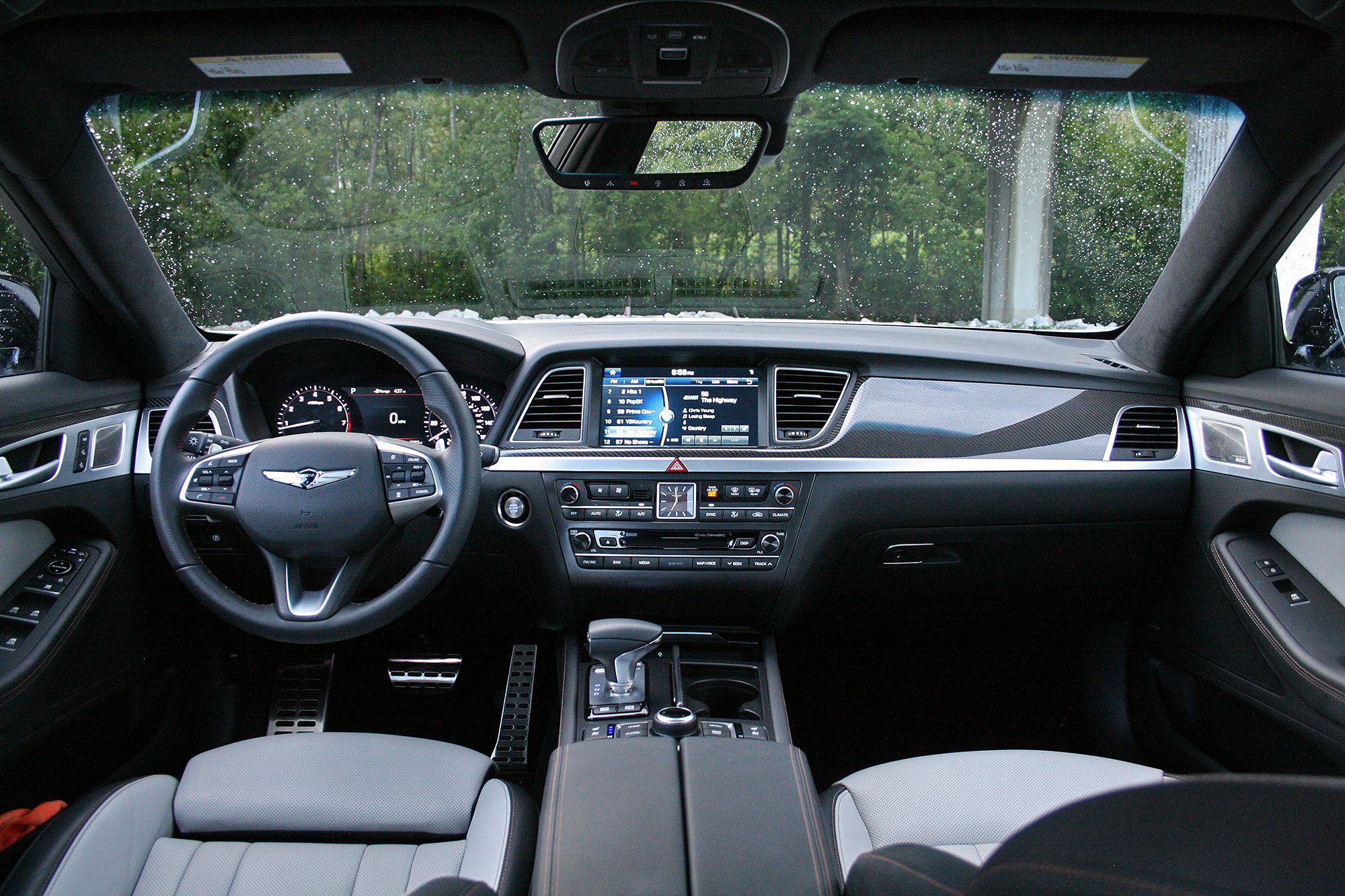In the beginning, Hyundai created Genesis, a premium label under which the South Korean automaker could sell luxury vehicles without the stigma of its value-driven name historically associated with duds like the Excel and a low-cost-before-all value proposition. Hyundai saw that value was good. Yet, instead of resting solely on those merits, the Genesis division is elevated to loftier goals – goals of uncompromised luxury and performance, while undercutting nemesis brands with less-costly price tags.
Hyperbole aside, Genesis has seemingly achieved that goal. See, I’ve spent a week with the 2018 Genesis G80 Sport, the brand’s mid-size executive sedan fitted with a 3.3-liter twin-turbo V-6, an eight-speed automatic transmission, rear-wheel drive, and a stiffer suspension over the standard G80. As a jaded journalist who’s driven plenty of high-end sedans with outrageous power, the Genesis had much to prove. But dadgummit, the G80 is simply impressive. It’s soft and cushy in every way when the drive mode is set to normal. The cabin is church mouse quiet, even over broken roads. And its driving controls are butter smooth, with throttle and brake inputs rewarded with linear responses and the steering on-point, though a bit on the vague side. Select Sport mode, though, and the twin-turbocharged G80 comes alive.
Keep reading for more of my impressions.
Behind the Wheel
Though not able to part the waters, the G80’s force-fed V-6 is more than capable of parting traffic. The all-aluminum, DOHC, 24-valve, direct-injected, and intercooled engine generates a horsepower for every day of the year and 375 pound-feet of torque. What’s more, its 365 horses peak at 6,000 rpm, while the flat torque curve starts at only 1,300 rpm and lasts till 4,500 rpm. Better yet, the engine doesn’t seem to suffer between 4,500 and 6,000 rpm. It just keeps pulling. Turbo lag off idle is apparent, but not detrimental to performance. Turn traction control off, and both 275/35R-19 rear tires will happily spin. In fact, the G80 doesn’t mind stepping out under heavy throttle. Its chassis is impressively balanced and predictable.
When not driving like a bat out of hell, the Genesis G80 settles into a comfortable, quiet cruise your pastor’s wife would approve of. The interior is very supple, with soft, padded leather adorning almost every touch point. What isn’t covered with leather and stitched together with copper-colored contrast thread is either high-quality plastic, metal, or a carbon fiber material that is either real or the best imitation I’ve seen.
The interior controls are all logically and ergonomically placed, making adjustments of anything a quick and brainless process. The dash and center console might look crowded with buttons, but the physical controls are easily committed to memory and require only a soft push to operate. That’s in stark contrast to other automakers which bury sub-system controls deep into the infotainment system, requiring effort and concentration for adjusting. Sometimes less isn’t more…
Conclusion
I’ve come away from my week with the Genesis G80 Sport incredibly impressed. While the G80 is technically a re-badged 2015-2016 Hyundai Genesis, the birth of the Genesis brand, the renaming of the car, and the addition of the Sport trim has unquestionably done wonders for its image. Having driven the 2015 Hyundai Genesis when it launched, I can say the 2018 Genesis G80 Sport is a much-improved car.
Genesis’ biggest hurdle is now convincing the luxury car-buying public that it’s a worthy competitor to Audi, BMW, Cadillac, Lexus, Mercedes, and Infiniti. Given the chance, Genesis would certainly impress even the staunchest of brand-loyal diehards. But the question remains: would it be enough to make them convert? Only time will tell.
Stay tuned for my full review of the 2018 Genesis G80 Sport.
References
Genesis G80
Read our full review on the Genesis G80.
2018 Genesis G80 Sport
Read our full review on the 2018 Genesis G80 Sport.
2015-2016 Hyundai Genesis
Read our full review on the 2015-2016 Hyundai Genesis.




